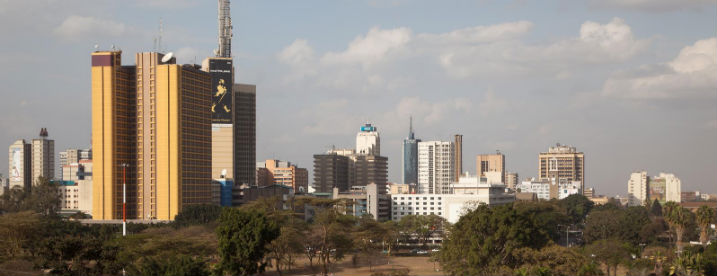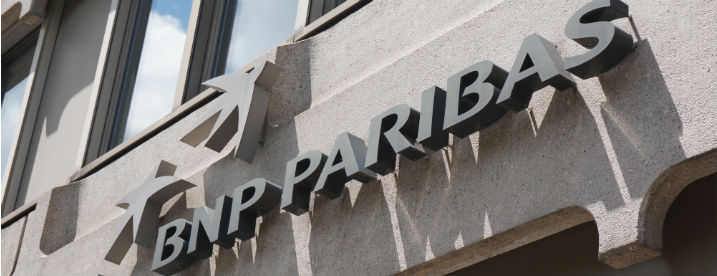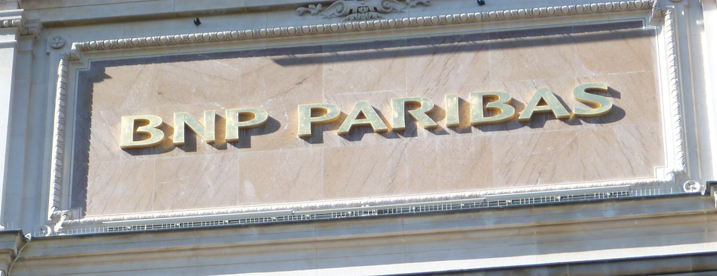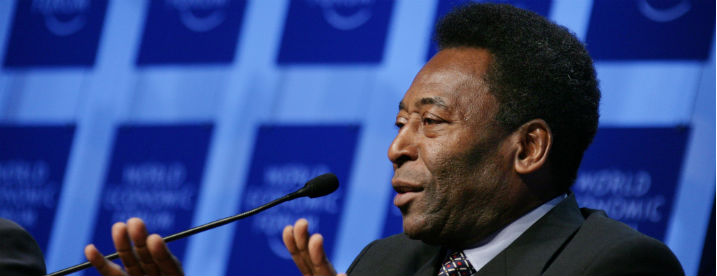By Michele Fletcher, July 16, 2014

Reforms Will Need to Be Further-Reaching and Institutionally Minded if China Hopes to Truly Curb Corruption and Illicit Financial Flows
The coverage of China’s financial sector has been quite the roller coaster of late: from President Xi Jinping’s anti-corruption campaign to bad loan collateral to CCTV’s exposure of the Bank of China’s “money laundering” schemes, it’s hard to discern the emerging country’s financial status.
However, one thing remains eminently clear: China has a deeply systemic illicit financial flow problem. It comprises both the individuals singled out in Xi’s purge (and a myriad of those who are not) as well as the corporations that facilitate this illegal behavior. According to our research, China remains the largest exporter of illicit money, with over a trillion dollars flowing illegally out of the country from 2002-2011:
By Grace Zhao, July 14, 2014

Don’t get too excited about Kenya’s removal from the Financial Action Task Force’s (FATF) gray list.
The FATF list of “high risk and non-cooperative jurisdictions” is a list of countries that the organization believes to be doing very little in the global fight against money laundering and terrorist financing. The list is based off a series of 40 recommendations that it expects countries to abide by to reduce money laundering and terrorist financing. These recommendations include, among other things, the regulation of banks and other financial institutions. Countries that do not adequately address these expectations are placed on the black or gray list based on varying degrees of compliance.
In 2010, FATF placed Kenya on a list of high risk countries for delays in enacting laws to tackle criminal financial activity as well as a failure to track money laundering.
By Cobus de Swardt, Global Financial Integrity, July 9, 2014

Curbing Cross-Border Corruption via Anonymous Companies Should Be a Priority for Global Leaders in 2014, Says Transparency International’s Cobus de Swardt
Corruption around the world is facilitated by the ability to launder and hide proceeds derived from the abuse of power, bribery and secret deals. Dirty money enters the financial system and is given the semblance of originating from a legitimate source often by using corporate vehicles offering disguise, concealment and anonymity. For example, corrupt politicians used secret companies to obscure their identity in 70 percent of more than 200 cases of grand corruption survey by the World Bank.
For far too long, corrupt figures have been able to easily stash the proceeds of corruption in foreign banks or to invest them in luxurious mansions, expensive cars or lavish lifestyles. They do this with impunity and in blatant disregard for the citizens or customers they are supposed to serve.
Importantly, the corrupt are aided by complacent and sometimes complicit governments of countries with banking centers that facilitate money laundering and allow the corrupt to cross their borders to enjoy stolen wealth. Weak government actions are failing to prevent the corrupt from evading justice and have enabled cross-border transfers of corrupt assets. Complacent governments responsible for protecting the public from such criminal acts are de facto supporting impunity for corruption.
By Grace Zhao, July 8, 2014

Kleptocrats and criminals are always looking for new ways to properly launder their illicit wealth, and it now appears that many of them are turning to Manhattan real estate.
Unsavory investors are increasingly purchasing New York City flats in an attempt to squirrel away ill-gotten funds or dodge billions of dollars in taxes, according to an in depth investigation by New York Magazine and the International Consortium of Investigative Journalists (ICIJ). Some might even say that New York City itself is becoming a sort of tax haven.
Since the financial crisis of 2008, 30 percent of all condo sales in the city were purchased through foreign entities—many of them anonymous shell companies—yet much of the purchased property remains vacant. The census bureau estimates that 30 percent of the apartments from 49th to 70th streets and between Fifth and Park Avenues in New York City are empty for up to 10 months of the year.
By Grace Zhao, July 2, 2014

A couple weeks ago, we wrote a blog post hoping that discipline would go further up the BNP food chain. Unfortunately, the U.S.-BNP Paribas settlement still ineffectively punishes the French bank.
France’s BNP Paribas has agreed to pay a historically large fine of $9 billion for violating sanctions on Sudan, Iran, and Cuba. At face value, this seems to be a big deal. After all, no bank has ever been fined so much for similar crimes.
Yet yesterday, shares in BNP Paribas rose 4 percent, even after the bank pled guilty to a criminal charge. Moreover, no single person within the bank has been charged specifically with any crimes, allowing those who abused executive power to slip away relatively unnoticed. BNP did fire a few employees. Some left on their own. Others faced demotions and pay cuts, small atonements for the billions of dollars that the bank illegally transferred.
By Grace Zhao, June 30, 2014

Tax abuse has a significantly negative effect on the enjoyment of human rights.
It is a large issue that is not often associated with humanitarian causes. Often tax abuse is perceived to only impact those on the extremes: the super rich and the miscellaneous rogues who run a money-laundering scheme out of their basements.
Yet secrecy jurisdictions, tax evasion, transfer pricing, and offshore bank accounts all contribute to increasing income inequality regardless of legality. Such inequality skews political power, which then has an undeniable impact on the availability of basic human rights to food, water, and shelter.
Tax abuse is not simply a clandestine activity, rather it is also actively sanctioned by governments through secrecy jurisdictions and other moves such as corporately lobbied tax holidays, both of which contribute to increased inequality and deeper poverty. This then violate the principle that governments should maximize efforts to provide basic human rights.
By E.J. Fagan, June 13, 2014

A few weeks ago, we wrote on this blog that New York Regulator Benjamin Lawsky was demanding that top executives at BNP Paribas be fired as part of their settlement deal for violating U.S. sanctions and money laundering rules during settlement negotiations. Today, The Wall Street Journal reported that Lawsky was successful:
BNP Paribas has tentatively agreed to oust a senior adviser at the French bank at the behest of New York’s top financial regulator as part of a proposed settlement of BNP’s alleged violations of U.S. sanctions, according to people familiar with the matter.
Benjamin M. Lawsky, who runs New York’s Department of Financial Services, requested the bank remove Vivien Lévy-Garboua, the people said. Mr. Lévy-Garboua has served as head of compliance and internal controls for BNP in North America and currently acts as an adviser to senior bank officials.
It is pretty typical for the bank’s chief compliance officer to be fired after a scandal like this. News reports have the eventual total at ‘at least a dozen’ executives, so we’ll see if the discipline goes farther up the food chain. BNP has announced the symbolic early retirement of Chief Operating Officer Georges Chodron de Courcel, who was expected to leave at the end of the year. No one should mistake that for real discipline, however.
By Grace Zhao, June 5, 2014

Pele’s son, Edinho, has been sentenced to 33 years in jail on money laundering charges.
Edinho, a former professional soccer player, was accused of using his father’s name to run businesses that conducted money laundering. Edinho was linked to drug cartel boss Ronaldo Duarte Barsotti, known as Naldinho, who allegedly controlled a large drug operation in Brazil’s southeast region.
Prosecutors say that Edinho connected the armed and the financial parts of the cartel and operated from the city of Santos, where he worked as a goalkeeping coach. According to a Santos-based newspaper, Naldinho and Edinho were tapped discussing the illicit money transactions by starting a new business.








